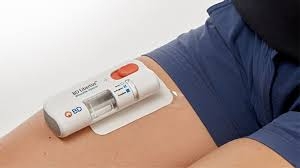The US Wearable Injectors Market analysis highlights the growing adoption of wearable injector devices driven by chronic disease management, patient-centric care, and advancements in drug delivery technologies. Wearable injectors provide controlled and continuous administration of therapeutic drugs, improving patient compliance and clinical outcomes for conditions such as diabetes, rheumatoid arthritis, and other autoimmune disorders. Technological innovations in microfluidics, automated dosing, and smart device integration are reshaping the landscape by allowing precise drug delivery and remote monitoring.
Additionally, regulatory compliance with FDA and healthcare standards is shaping product design, safety protocols, and adoption rates. The combination of advanced technology, patient convenience, and clinical efficacy is driving the market’s expansion. Increased demand for self-administration solutions, coupled with rising awareness about chronic disease management, is positioning wearable injectors as a preferred alternative to traditional injection methods. These factors collectively contribute to a robust growth outlook for the US wearable injectors market.
FAQs
Q1: What factors are driving the US wearable injectors market?
A1: Chronic disease prevalence, patient-centric care, technological innovation, and regulatory compliance.
Q2: How do wearable injectors benefit patients?
A2: They improve compliance, ensure precise dosing, and enable remote monitoring.

